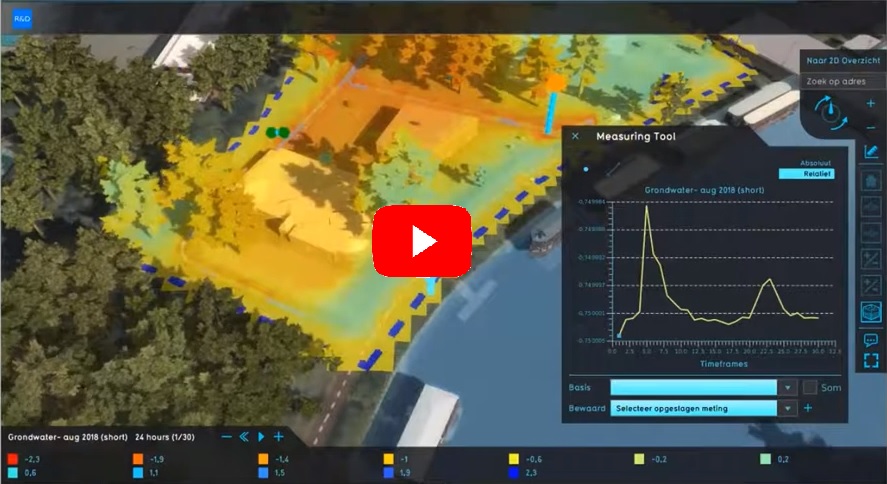Surface water (Water Overlay): Difference between revisions
Jump to navigation
Jump to search
No edit summary |
No edit summary |
||
| Line 2: | Line 2: | ||
{{Overlay attributes|type=row|overlay=Water | {{Overlay attributes|type=row|overlay=Water | ||
|attribute=SURFACE_WATER | |attribute=SURFACE_WATER | ||
|unit= | |unit=Nominal value | ||
|description=Whether and how [[Surface model (Water Overlay)|water on the surface]] is simulated during the calculation. | |description=Whether and how [[Surface model (Water Overlay)|water on the surface]] is simulated during the calculation. | ||
|defaultvalue=Shallow | |||
}}</onlyinclude>}} | }}</onlyinclude>}} | ||
= | {{nominal list|zeroindex=true | ||
|| '''None''': Water on the surface can only infiltrate and evaporate, but it will not flow between neighboring surface cells. | |||
|| '''Shallow''': Evaluation of the shallow water equations are applied to water in waterways and on land. This option is selected by default. | |||
|| '''Avg Waterway''': Water levels are averaged each time frame for each identified waterway. Shorelines around waterways are also taken into account when averaging a waterway. Water flows between waterways using [[Hydraulic structures (Water Overlay)|hydraulic structures]]. Water does not flow between grid cells on land. On land it can only move vertically (infiltrate or evaporate) or interact with hydraulic structures or [[Hydrological_features_(Water_Overlay)|hydrological features]]. The threshold attribute [[Avg_shore_width_m_(Water_Overlay)|AVG_SHORE_WIDTH_M]] is used to determine the maximum allowed distance to the waterway for shoreline cells. | |||
|| '''Hybrid''': This mode performs the '''Shallow''' mode as well as the '''Avg Waterway''' mode. | |||
|| '''Avg Terrain''': Similar to '''Avg Waterway''', with the exception that surrounding land is also included. The model attribute [[Avg_terrain_width_m_(Water_Overlay)|AVG_TERRAIN_WIDTH_M]] is used to determine the maximum allowed distance to the waterway for land cells around the waterways. Water on terrain cells is only averaged when their level is higher than the configured model attribute [[Avg terrain storage m (Water Overlay)|AVG_TERRAIN_STORAGE_M]]. | |||
}} | |||
{{article end | {{article end | ||
|seealso= | |seealso= | ||
* [[Surface model (Water Overlay) | * [[Surface model (Water Overlay)]] | ||
* [[Ground water (Water Overlay) | * [[Ground water (Water Overlay)]] | ||
* [[File:Grid_av.jpg | link=https://youtu.be/vGn6YGcVXlA|thumb|left|200px|Grid averaging {{software}}(Dutch only)]] | * [[File:Grid_av.jpg | link=https://youtu.be/vGn6YGcVXlA|thumb|left|200px|Grid averaging {{software}} (Dutch only)]] | ||
|howtos= | |howtos= | ||
* [[How to add and remove an Attribute]] | * [[How to add and remove an Attribute]] | ||
Revision as of 09:14, 10 February 2022
| Icon | Attribute | Unit | Range | Description | Default value |
|---|---|---|---|---|---|
| SURFACE_WATER | Nominal value | Whether and how water on the surface is simulated during the calculation. | Shallow |
| 0. | None: Water on the surface can only infiltrate and evaporate, but it will not flow between neighboring surface cells. |
| 1. | Shallow: Evaluation of the shallow water equations are applied to water in waterways and on land. This option is selected by default. |
| 2. | Avg Waterway: Water levels are averaged each time frame for each identified waterway. Shorelines around waterways are also taken into account when averaging a waterway. Water flows between waterways using hydraulic structures. Water does not flow between grid cells on land. On land it can only move vertically (infiltrate or evaporate) or interact with hydraulic structures or hydrological features. The threshold attribute AVG_SHORE_WIDTH_M is used to determine the maximum allowed distance to the waterway for shoreline cells. |
| 3. | Hybrid: This mode performs the Shallow mode as well as the Avg Waterway mode. |
| 4. | Avg Terrain: Similar to Avg Waterway, with the exception that surrounding land is also included. The model attribute AVG_TERRAIN_WIDTH_M is used to determine the maximum allowed distance to the waterway for land cells around the waterways. Water on terrain cells is only averaged when their level is higher than the configured model attribute AVG_TERRAIN_STORAGE_M. |





